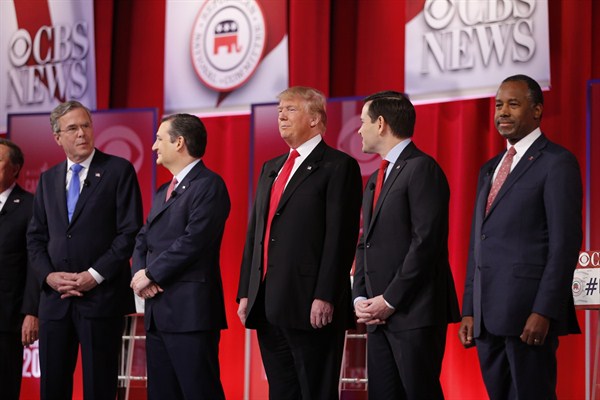An iconic cover illustration of the New Yorker magazine once purported to show the stereotypical Manhattan resident’s view of the world: Looking west from 9th Avenue, half the page consists of a relatively detailed rendering of the city’s buildings and streets leading up to the Hudson River. Beyond that, a small patch of land, featureless but for several cartoonish mountains and place names, passes for America. Faintly visible in the distance beyond the Pacific Ocean are landmasses helpfully labeled as China, Japan and Russia.
If one were to draw a similar cartoon illustration to represent how this year’s U.S. presidential candidates see the world, the Middle East—and in particular, Iran, Iraq and Syria—would replace Manhattan on the half of the page that “matters.” China and Russia would remain far off the in the distance, with the rest of the world nowhere to be found.
Judging from the 15 presidential debates that have been held since August, it seems clear that the men and women seeking the presidency this year, as well as the moderators tasked with asking them questions, think that the entire world consists of the area between the Mediterranean and the eastern border of Iran. Simply put, terrorism, the Middle East and the alleged threat posed by Tehran has dominated these discussions. It is yet a further reminder that a decade and a half after 9/11, U.S. foreign policy debates disproportionately focus on the Middle East. If the United States is to ever extricate itself from a region that has brought it mainly heartbreak, in the form of both blood and treasure, Americans, along with their political leaders, need to widen their view.

